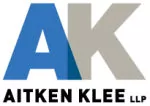In Angelcare v Munchkin, Justice Roussel of the Federal Court affirmed a decision allowing in-house counsel to access the "Counsel's Eyes Only" materials filed that proceeding.
Angelcare and Munchkin are global competitors in market for baby care products. Angelcare commenced an action against Munchkin alleging that Munchkin's diaper pails and diaper pail cassettes infringed several of its patents.
The parties expected to exchange highly sensitive documents in the course of the proceeding and agreed that a protective and confidentiality order with two tiers of confidentiality would be appropriate: a "Confidential" tier and a more restricted "Counsel's Eyes Only" tier. The parties could not agree on whether the CEO tier should include Mr. Evora, an in-house lawyer at Munchkin. Angelcare brought a motion seeking the issuance of an order that excluded Mr. Evora.
Prothonotary Morneau held that the goal of CEO confidentiality was to prevent the management of competitor parties from basing decisions on confidential information received through litigation. Citing Bard Peripheral, Prothonotary Morneau noted that concrete evidence of actual prejudice is required to prevent disclosure of CEO information to in-house counsel because doing so interferes with the "sacrosanct relationship between a party and its in-house counsel".
Angelcare argued that Mr. Evora was in a position to use the CEO information to develop and market improved competing products. However, Mr. Evora filed an affidavit stating that his role was limited to patent prosecution and litigation and was not cross-examined on that affidavit. Prothonotary Morneau rejected Angelcare's arguments that Mr. Evora would breach his obligations to keep the CEO information confidential and that Mr. Evora would use the CEO information. Accepting that Mr. Evora would need to see the CEO information to consult with and instruct external counsel, Prothonotary Morneau ordered the parties to include Mr. Evora and one member of Angelcare's in-house counsel within the CEO tier. Angelcare appealed this decision.
On appeal, Justice Roussel reviewed the jurisprudence and concluded that a CEO tier is only appropriate in "unusual circumstances" and that the party requesting a CEO tier bears the "heavy burden" of demonstrating that it is necessary. Justice Roussel held that each case is decided on its own merits and that there are no criteria to be applied in every instance. She found that a "determining factor" is the level of involvement of in-house counsel in the party's day-to-day operations and the threat it poses.
Justice Roussel determined that Prothonotary Morneau was entitled to prefer and rely on Mr. Evora's evidence regarding his lack of involvement in Munchkin's day-to-day business. She therefore dismissed Angelcare's appeal.
A copy of the decision may be found here. The decision of Prothonotary Morneau may be found here.
The content of this article is intended to provide a general guide to the subject matter. Specialist advice should be sought about your specific circumstances.

